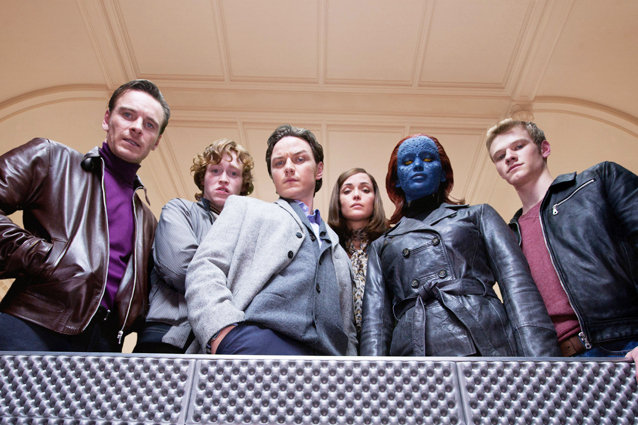
HOLLYWOOD SHOULD STOP MAKING HOLOCAUST MOVIES
If the recent release of The Monuments Men proves anything, it’s that Hollywood should stop making Holocaust movies.
There’s no denying that The Holocaust was a horrific event, and that we should make every effort to remind young generations that terrible tragedies can occur when individuals become corrupted by power. However, just as disturbing is Hollywood’s endless need to exploit this tragedy for the pursuit of profit.
It was Theodor Adorno who once said, “To write poetry after Auschwitz is barbaric.” Adorno’s point is especially relevant when we consider the constant circulation of Holocaust movies like The Monuments Men. In order to understand the problem, it’s important to realize that George Clooney and his co-stars are cashing in on this movie, as are the major Hollywood studies that produce it. Hollywood is a business after all, and we all know that there’s no better way to attract moviegoers than to release another “important” story about the Holocaust. In this particular case, we follow a group of American soldiers who are sent to rescue artwork from the Nazis, because apparently artwork is more important than people.
There was a time when it was necessary for Hollywood to make Holocaust movies. Film is popular entertainment, and it has the potential to enlighten the masses about this brutal event in history. However, we already have Schindler’s List (1993) and The Pianist (2002), and there are hundreds of excellent, important documentaries worth renting. What we don’t need, and what Hollywood keeps giving us, is American movie stars like Clooney and Matt Damon engaging in witty banter through World War II rubble. We aren’t going to benefit from Kate Winslet hanging herself at the end of the The Reader (2008). And we especially aren’t going to be moved by Brad Pitt’s collection of Nazi scalps in Inglorious Basterds (2009). It appears that Hollywood failed to understand that they were only supposed to make one or two important movies about the Holocaust. Instead, they’ve unleashed a genre.
Hollywood has made movie after movie about the Holocaust to the point where audiences become so distant from the real event that they only think about it in terms of cinematic conventions. Last year, for example, critics and audiences panned The Book Thief (2013) for being too “sappy” and “precious.” And maybe it was, but we’ve gone too far if we’re judging Holocaust movies by the same standards that we judge a Nicholas Sparks adaptation.
The Holocaust was a horrific, brutal event, and we must remember and honor its victims. To do this, Hollywood must stop making Holocaust movies.
HOLLYWOOD SHOULDN’T STOP MAKING HOLOCAUST MOVIES
If the recent release of George Clooney’s film The Monuments Men — based on Robert M. Edsel’s book The Monuments Men: Allied Heroes, Nazi Thieves and the Greatest Treasure Hunt in History — proves anything, it’s that Hollywood can still create emotional and compelling films about the Holocaust.
Though World War II is a dark time in the world’s history that many would like to forget, we shouldn’t. Of course, many fans of cinema will tell you that we have enough movies focusing on this period of time. Some might even say Hollywood should have stopped after creating Schindler’s List. However, the Holocaust will never stop being part of the world’s history, and Hollywood should never be told to stop creating films based on the subject.
History shouldn’t just be taught by school teachers or textbooks; history can be taught by survivors, by those choosing to tell the survivors’ story. History can be learned through any medium whether it’s a factual first account or a fictional retelling, like Quentin Tarantino’s Inglourious Basterds.
Perhaps some moviegoers see mentions of the Holocaust as cheap plays on sentimentality, but it also shouldn’t be a topic Hollywood wholly avoids — especially in non-historical films. Two specific movies come to mind: The Avengers makes a brief allusion to the World War II and Magneto’s revenge story in X-Men: First Class deals with a survivor’s story — a very fictional survivor who can control metal with his mind, but still.
However, both these films are impactful in different ways. The scene in The Avengers that references the Holocaust is amazing. An old man stands up to Loki, who presumes to be Earth’s one true ruler, and tells him he is nothing special; there will always be men who wish to subjugate humankind and they will always be defeated. Similarly, Magneto’s storyline in X-Men gives the character agency so that he is not simply a one-dimensional victim archetype.
The fact that we can still be moved by the Holocaust — whether it’s in a superhero flick or a serious drama like The Monuments Men — is an important factor to respecting and immortalizing history. Holocaust films should not be disregarded simply because someone is tired of remembering something uncomfortable.


